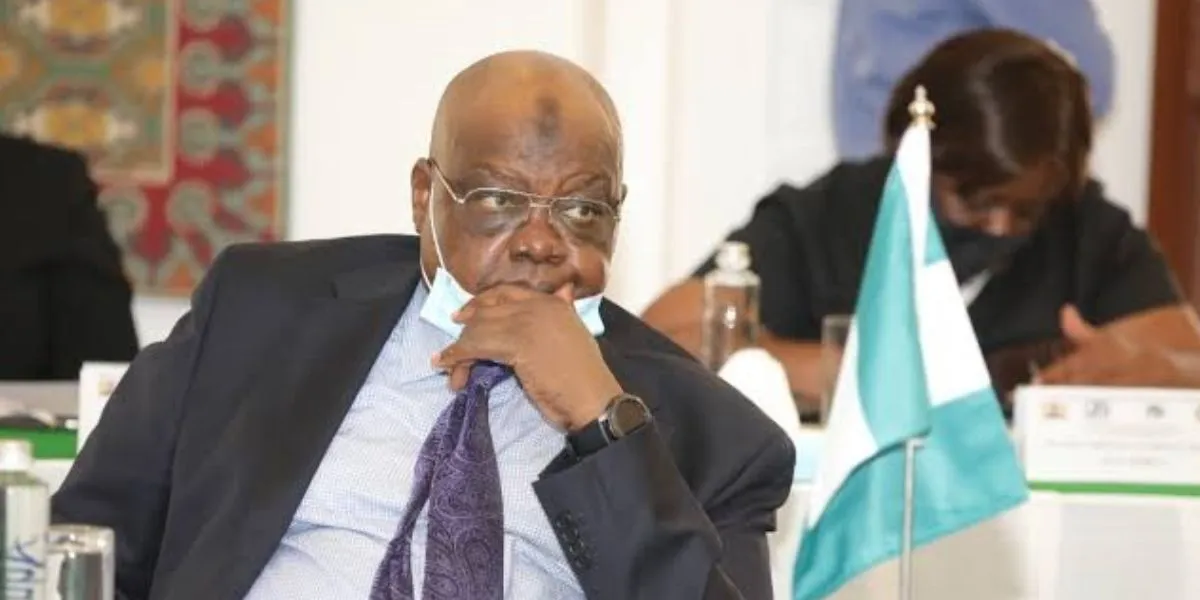The speech by former justice of the Supreme Court, Justice Musa Dattijo Muhammad, which rumbled the judiciary over the weekend, may prove to be the turning point in the judiciary.
The country’s judiciary is beset with a number of challenges among which are lack of independence, corruption and shortage of justices in number.
During his valedictory session to mark his exit from the bench after 47 years on October 27, Justice Dattijo hit out against the ills of the judiciary including the depleting number of Supreme Court justices, non-representation of the North Central and South East on the bench, funding of the judges of the judiciary, nepotism in the appointment of judges and negative image of the judiciary.
However, contrary to suggestions in some quarters that the speech has created some cracks in the Supreme Court, senior lawyers aver that there is no crack.
According to Ajibola Omole, Justice Dattijo in his valedictory speech talked about the office of the Chief Justice of Nigeria (CJN) and how to improve the judiciary, and not the person of Justice Olukayode Ariwoola.
“Ariwoola became CJN on the 27th June 2022 and the events Dattijo referred to in his speech happened before Ariwoola became the CJN.
“The non-replacement of justices of the Supreme Court predated the CJN. The CJN was very sensitive to the seven-man panel constituted by him, by not including any Yoruba on the panel, knowing full well that Tinubu is Yoruba and there is no justice of the Supreme Court from the South East to balance the equation, even though you have Helen Ogunwumiju and Kekere-Ekun from the South West,” he said.
He also said, “The complaint against the composition of the panel that heard the Atiku/Obi /Tinubu appeal falls flat and is in the realm of grandstanding.”
Reacting to the depleting number of justices in the apex court, Olisa Agbakoba (SAN) said the remaining figures are too tight and narrow to make rotations for all the presidential, governorship and pre-election disputes currently pending before the apex court.
“It baffles me that people who are overburdened with work are always unable to fill their quota of 21 justices,” he said.
“We have never had it so low in the past; so, it is high time they quickly appoint someone to fill these slots,” he added.
Barrister Sanni Abubakar said Dattijo should have criticised the system while still serving on the bench, describing the criticism as “wisdom after the event.”
“In fairness to Dattijo, he did not criticise the judgement, and he did not criticise Justice Ariwoola, CJN, but criticised the system that is starving the Supreme Court of full complements of justices; he criticised the low pay of judges vis-a-vis the judiciary workers and asked for all zones to be represented on the Supreme Court board.
- K. Gadzama (SAN) said of the retiring jurist, “With a radical stance for justice and rule of law, he has immensely contributed to Nigeria’s jurisprudence as evidently demonstrated in your lordship’s landmark judgments which solidified numerous principles of law on various issues. Indeed, your Lordship has set the pace for generations to come.”
Justice Dattijo Muhammad on his part, said in his speech, “Intrinsic in what I have said today are indices to dampen, nay eradicate, the lapses in the judiciary. The duty to revive the institution remains a collective one. We must persist.”
Overall, the retiring justice’s speech was seen not as a negative criticism of the judiciary but as a noble contribution to the improvement of the third arm of government.
Justice Dattijo was born on 27th October 1953 in Chanchaga LGA of Niger State. He attended Sheikh Sabbah College (now Sardauna Memorial Secondary School), Kaduna 1967-1971. From 1971-1973, he attended the Abdullahi Bayero College (now Bayero University) and obtained a pre-degree certificate.

 Join Daily Trust WhatsApp Community For Quick Access To News and Happenings Around You.
Join Daily Trust WhatsApp Community For Quick Access To News and Happenings Around You.


